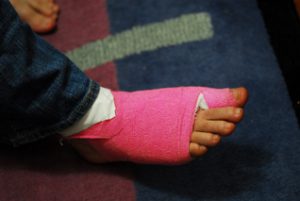The Treatment of Personal Injury Awards in Family Law Property Settlements
Property Settlements are difficult to calculate at the best of times, but what happens when one spouse has received a large personal injury payment? There is not only the financial contribution to consider, but also the impact on the family with additional care requirements and stresses.
Getting started:
Under the Family Law Act there is no mathematical formula as to how the division of property should occur. The legislation sets out a number of factors which must be taken into account when determining a property settlement. This has been described by the Court as a four step process, which includes:
- First: identify and value all of the property owned by the parties, including property held by both parties and also any property owned separately by each party.
- Second: evaluate the contributions of both parties to the marriage. This includes financial contributions, non-financial contributions and also contributions as a parent or homemaker (as set out in s79 of the Family Law Act).
- Third: look ahead and take into consideration the factors affecting the future needs of each party. The matters that are to be taken into account (as set out in s75(2) and of the Family Law Act) include:
a. The age and state of health of each of the parties;
b. Whether either party has the care and control of the children of the relationship under the age of 18 years;
c. The standard of living which is reasonable;
d. The income property and financial resources of each of the parties and the physical and mental capacity of each party for appropriate gainful employment;
e. The duration of the marriage and the extent to which it has affected the earning capacity of either party;
f. The need to protect a party who wishes to continue that party’s role as a parent; and
g. Any other fact or circumstance which the Court requires to be taken into account.
- Fourth: determine whether the proposed division is “just and equitable”.
A right to sue:
The right to sue is a right of a personal nature, and as it cannot be assigned, it therefore does not constitute property for the purposes of section 79 of the Family Law Act. In the matter of Zorbas and Zorbas (1990) FLC 92-160. McCall J held that:
“The right to sue is a chose in action which in turn is generally classified as personal property. A chose in action, however, may fall into different categories, those which are assignable and those which are not. A right of action to recover damages for negligence resulting in personal injury is not capable of assignment either in common law or equity … The question which then arises in this case is whether an unassignable chose in action is property for the purpose of s79 of the Act…
In my view the weight of authority is that a bare right to sue is a right of a purely personal nature for the purposes of s79 of the Family Law Act”.
How are personal injuries awards taken into account in relation to property settlements under the family law act?
In the case of Aleksovski v Aleksovski [1996] FamCA 111, the Full Court considered the treatment of personal injuries awards received during a marriage, in a property settlement context. The facts were:
- There were 3 children of the marriage, aged 9, 15 and 11 years, at the date of the trial.
- The parties earned similar incomes
- In 1988, the Wife was injured in a motor vehicle accident and received $143,000 in compensation, of which $100,000 was attributable to “pain and suffering”.
- The Trial Judge took the compensation award into account as a “financial contribution” of the Wife pursuant to s79 of the Family Law Act, and in addition, allowed a 15% adjustment in the Wife’s favour pursuant to s75 (2) of the Family Law Act.
- The Husband appealed on the basis that the Trial Judge had given full weight to the contributions of the Wife, and either ignored or gave minimal weight to the contributions of the Husband.
- The net assets of the parties were $240,800.
- The Trial Judge held that the Wife should retain 77% of the property pool.
On appeal, the Wife’s entitlement was decreased by 15%, to 62%.
Baker and Rowland JJ, held that any award of General damages is taken into account as a contribution by the party who received the payment. Likewise, economic loss is taken to represent income lost during the relationship and is also regarded as a contribution of the party who has suffered the loss. Their Honours stated that:
“In our opinion, in most cases, a damages verdict arising from a personal injury claim, whenever received, is a contribution by the party who suffered the injury. It should not be considered in isolation, for the reason that each and every contribution, which each party makes to the relationship, must be weighed and considered at the time.”
In relation to the treatment of personal injuries and their treatment pursuant to s75(2) of the Family Law Act, their Honours stated that:
“We would have thought that, as the award vested, with the wife receiving the full amount of compensation to which she is entitled, there would have been no further need to consider the circumstances of the award in the context of s75(2), except in relation to any residual disability which the wife may have impacting on her earning capacity.”
Contact:
Should you have any queries or require assistance in your situation, do not hesitate to contact us at Michael Lynch Family Lawyers on (07) 3221 4300.







